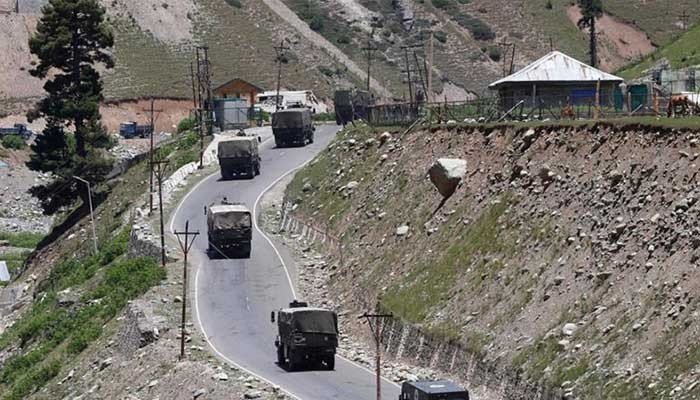China sent martial artists, mountain climbers to India border before Ladakh clash

Ladakh : China’s it reinforced its troops at the Ladakh border with martial arts fighters and mountain climbers, before the deadly clash between Chinese and Indian troops that saw 20 Indian soldiers killed and others captured.
Tensions are common between the two nuclear-armed neighbours in the mountainous border terrain, but this month’s fighting was their deadliest encounter in over 50 years.
Five new militia divisions including former members of a Mount Everest Olympic torch relay team and fighters from a mixed martial arts club presented themselves for inspection at Lhasa on June 15, the official military newspaper China National Defense News reported.
State broadcaster CCTV showed footage of hundreds of new troops lining up in the Tibetan capital.
Tibet commander Wang Haijiang said the Enbo Fight Club recruits would “greatly raise the organization and mobilization strength” of troops and their “rapid response and support ability,” China National Defense News reported, although he did not explicitly confirm their deployment was linked to ongoing border tensions.
Chinese and Indian troops clashed later that day in the most violent confrontation between the two powers in decades, in the Ladakh region 1,300 kilometres away.
India says 20 of its own soldiers were killed in brutal hand-to-hand combat that day, while China suffered an unknown number of casualties.
Both sides have blamed each other for the battle, which was fought with rocks and batons without any shots fired.
India said Thursday that it had reinforced troops in the contested Himalayan border region, saying it was matching a similar buildup by China.
Chinese state media have in recent weeks highlighted military activity including high-altitude anti-aircraft drills in the Tibet region bordering India.
The new troops were recruited with the aim of “strengthening the border and stabilizing Tibet,.
India claims Chinese troops ambushed Indian soldiers and forced them down a ridge where they had gone to remove a Chinese “encroachment”.
A bilateral accord prevents the use of guns, but the fighting was still fierce, with rudimentary weapons.
China has in turn accused Indian soldiers of twice crossing the Line of Actual Control, the unofficial boundary, provoking its troops.
The two countries fought a war over the border in 1962. There is an understanding between the nuclear-armed neighbours that their troops in the disputed and inhospitable region will not use firearms.
Related News

‘Economic diplomacy’: Pakistan announces appointments of envoys to key capitals
DNA ISLAMABAD: The federal government has appointed 19 ambassadors and consuls general to key capitalsRead More

Tension with Afghanistan mounts as diplomatic efforts falter
Shamim Shahid PESHAWAR: Tensions between Pakistan and Afghanistan have escalated sharply following a series ofRead More


Comments are Closed